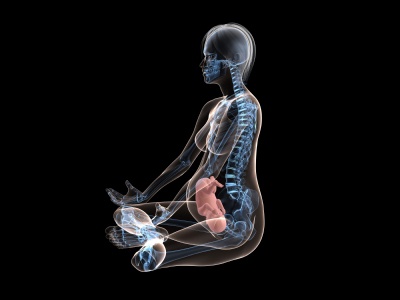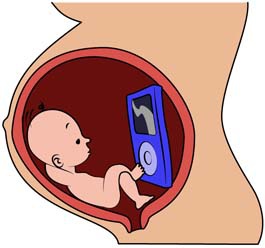“The first school for your baby is not preschool but as early as before born
and it is called womb school. This fresh and current concept creates an
unprecedented opportunity for moms to explore the possibility to reform a
baby with different brain functions and updated IQ. A dream that has been
dreamed by human being for millions of years is coming to us.”
Chapter 9 - CHILD STIMULATION DURING PREGNANCY
The exercises, recommendations and tips contained in this ebook have been created based on sound research done by scientists, psychologists, doctors, and college professors, in different countries worldwide during the last 40 years. Several different kinds of studies have been done, far too many to capture in this chapter, so we will focus on experimental studies.

You may wonder about what you can do to stimulate your fetus baby, and is it a complicated and expressive process? The advanced development of your fetus baby’s brain needs some stimulation during pregnancy time, but it doesn’t mean that you need to use lots of advanced tools like flash drive or online products. Baby stimulations can be as simple as singing a song or telling a story to the womb when time is good for you, and your caring is the most important part of the stimulation.
While performing any baby stimulation, moderation is the key. Many parents are eager to give their best of help by using ear phones or music instruments to touch the belly, to teach music or languages. But this may results in overdoing. Any sound tracks or stereos do not have to touch or directly to be on the belly, they can be played as usual when you are listening to music or radio, to avoid the possibility of damaging the baby and the brain, because it is not easy to determine how loud the sound needs to be to protect the baby. And it is confirmed that too loud or too noisy a sound will do harm to babies.
As active parents, all you need to do is behave normally, and you can follow suggestions in this ebook, but keep in mind that everything needs to be handled step by step slowly, cautiously and easily. In case you don’t like any specific way introduced, you are free to use your own way to teach your baby. Whenever you understand that it should be moderate and easy, you are on track.
One more rule you need to know is that the younger the baby is, the shorter attention it will be. As a fetus baby, the attention that can be there will be less than one minute most of the time. In this case, any game or activity that needs your effort should be one minute or shorter, and then it has to be shifted to a different game or activity to attract the attention again. The total stimulation is for several minutes per day. But if music, record or video is playing around, it can be 30 minutes or one hour maximum, because it is fine if the baby fall asleep while listening. The best time of giving the stimulation is in the evening, between half an hour to two hours after dinner, or any other time you think is better according to your baby.

Image stock from Depositphotos.com
9.1 - Introduction to Womb School
Early fetus and child stimulation started in the early 1970s, and it was programmed for those with disabilities or genetic problems. It has been applied to healthy fetuses and children later due to the great successes of different stimulation programs worldwide. Early stimulation is a process that facilitates significant learning opportunities for babies before birth, to allow them to initiate the learning process about the world surrounding them, and to promote the early developments of their brain to fit to their physical capacities, learning interests, and environmental controls.
Fetus education is popular nowadays, and it is also a practical and realistic procedure. Fetus brain is in a fastest development stage compared to any ages in a person’s life, and it is considered a developmental speed of half a million of brain cells per minute. And thus the brain is very susceptible to any influences throughout the whole pregnancy. As a plain and initial stage, it is a shape-able and fill-able organ waiting for your exploration.
The development of the brain and its nervous system is affected by what are in the blood from the mother, what are in the environment surrounding the mother, and what the fetus can hear and sense in the total time of the 9 ½ months. It has been confirmed just recently that babies in the womb can hear sounds like voice and music as early as week 16, can cry and laugh and feel touch, and can sense light in the womb at least at week 28 of pregnancy or earlier. Isn’t this amazing?
This means that you should treat your fetus baby as a real person, and one of the ways of doing so is the Prenatal Bonding. Prenatal bond formed between the baby and the parents are important especially for IQ intelligent development. Jenoe Raffai, a psychoanalyst in Hungary, noticed the importance of prenatal relationship in teenage child mental development in the early 1990s. He created a method to help mothers to form an inner connection to their unborn babies, and is called “bindungsanalyse” in Hungarian, and translated to the US English as “Prenatal Bonding.”
Prenatal Bonding was introduced to the US in 2009, and it can be formed at the week 20 of pregnancy. Since every baby is different, the mother needs to learn how to communicate with the unborn baby by word thoughts including images, colors, feelings, emotions and movements. The baby will choose the favorite way to communicate with the mother, and the mother will learn and accept the ways and the baby’s signals that chosen by the baby, and facilitate the communications. After the buildup, the mother will constantly feel the presence and existence of the baby in her womb.
This can be a family event, if the father also joins in. The father will be an assistant to offer emotional and physical protection and shelter that will permit the mother to go deeper into the mind of the baby, and to connect with the baby well. The role of the father is supreme, because he can create a social net at home to form a safe and pleasant place for the mother to tolerize extensive changes in her body, and in her relationships of life. The father can also connect himself to the unborn baby through this social net he created at home that is confirmed supportive in the prenatal bonding processes.
The successful results of the prenatal bonding show that there was no one case of autism, and no postpartum depression (regular rate of postpartum is about 15%) after birth in more than 2,000 cases studied. The babies born were more curious, emotional stable, and socially mature. Their capacities exceed other children with the same ages, and they often become class leaders.
It is known only recently that what the mother is thinking, saying and doing will also have impact on fetus brain growing and mental development. These facts tell us that fetus is affected by anything that is inside and outside of the womb, and thus womb education protocols should include multiple lessons that involve in activities inside and outside of the mother’s body.
Growing evidence shows that events ongoing from the mother or the environment can influence baby’s brain. One of the examples is that when parents sing songs or play music while pregnant increases the likelihood of the baby favoring song and music when growing up later. For example, a story tells that a cellist named Pablo Casals found that when he read a specific piece of music, he knew surprisingly the following part, but he had never read it before. Later he realized that his cellist mother rehearsed the same piece of music during her late stage of pregnancy. The story confirms the truth that what happens during pregnancy can influence the baby’s brain functions.

On the other hand, if a pregnant mother is full of fear and anxiety, she will have a chance to give birth to an anxious baby. Since mother and fetus share the blood that contains hormones from the mother, and it is understandable that stress hormones will modify the brain development and yield a different baby. In the meant time, when a healthy mother comes with full confidence and happy mood, she will be calm, eat well and sleep well, and she probably will deliver a happy and healthy baby.
Family members of pregnant women should try to understand the needs of the mom and her baby, and to help her to manage her way towards a calm and normal baby with healthy and intelligent qualities.
9.2 - Early Stimulation in the Womb
There are many ways to stimulate the brain development and to boost the baby’s IQ as early as 20 weeks when the ears of the fetus start functioning and the fetus baby senses the surrounding environment better. The common senses you need to know are that you need to reduce your stress and anxiety; to eat in a healthy way; and in addition, to stimulate your baby’s intelligence by using an acceptable protocol. The content about how to reduce your stress and anxiety is described in Chapter 7 of this ebook, and the content about your nutrition in pregnancy is described in Chapter 8. You may refer to these chapters to get what you are looking for to enrich your knowledge. This chapter will be focusing on how to stimulate your baby’s IQ intelligence in the womb.
The womb stimulations for IQ should include these aspects as follows to reach the maximum outcomes: language stimulations, music stimulations, tactile stimulations, and active stimulations.
The language stimulations include talking and reading to your baby. Both you and your partner can do this job, and your voice will be the one with special magic impact on your baby because it is inside your body. You may choose any material for babies that both of you and your partner like, and it will be better if the materials chosen are clear, simple and easy to be understood. They can be short stories, short talks, brief poems, and anything interesting.
Besides reading and talking, you may record your and your partner’s voices and play them back to the baby. Most of smart phones have voice recorders, or a MP3 recorder is commercially available for affordable pricing. PC computer will work too, and it will be under Start – Program – Accessories – Sound Recorder, and you will need a microphone for your PC. You may play the recorded material back as when you play music or radio, and ear phone to attach to your belly is not necessary.
The music stimulations include all types of music, and the most welcome ones for your baby will be child music or songs. Your baby will follow the melody of the music to be either calm, excited, or happy. Some classical pieces of music have been Page 121 confirmed to play special roles in IQ development, and this content will be discussed in more details in later volume of this chapter. Briefly, the impact of music will work on a different part of the brain compared to language stimulations, and baby’s ears are very sensitive to music playing outside of the womb starting from week 23. It has been confirmed by many children and adult individuals who can recognize the music heard in their womb later in their lives.
The tactile stimulations mean massage, kick game, and so on. You can massage or just gently rub the baby through your belly, and it will comfort both the mother and the baby to reduce stress and anxiety, and to live happy life. It will also improve intelligence because we learn from Chapter 7 that how relaxation is important for IQ development. By playing kick game, you can respond to your baby's kicks by pressing gently back, and this game is described in details in Chapter 6.
The active stimulations mean playing different games with your baby in the womb. These include the kick game, the drum game, the number counting game, the music game, the word game, and so on. These games are very important for stimulating the baby’s brain and assisting the IQ development, and are all described in Chapter No. 6.

In addition, since your baby gets used to the environmental noises at home, you should keep everything the same after birth for the baby to fit to the same environment easily, other than that, everything else will be brand new for the baby. Your baby will be also sensitive to light in the womb, so going out to be under the sun or lying down on a sunny lawn with shadows will be a happy thing. Your baby will sense the light and the warmth from the sun that will help with the brain growth.
There are many successful stories of womb education that you can find online or in book stores. One of the well-known successful stories is reading or recording material from a book sequel called “Cat in the Hat.” This is a book written for kid, and it is easy and fun to read. It has been used for brain training in the womb to raise the IQ of fetus babies successfully.
For instance, a father read and recorded this book serial on a 60 minute audio tape with some very simple alphabet and number readings in the beginning, and started playing it to their baby in the womb since week 20, as the last thing in the evening while lying in bed. It was not every night and they did not get through the whole tape each time before falling asleep. The baby started talking at month 9 after born, and was able to install and run his own program in Windows 98 at age 4! His IQ was 134 that puts him in the top 1% of the group with the same age.
The reason to choose the book “Cat in the Hat” is that it was written for oral reading, and it is composed of 221 distinct words that are monosyllabic and easier for baby to recognize. Other book choices will be suitable and good for the exploration of baby’s intelligence in the womb too, like “Fox in Socks,” “Green Eggs and Ham” and “Mother and Baby,” and these are all good books for the same purpose. You may choose any of them based on your ideas.
Some more reasons of choosing books to read and record by yourself, instead of buying commercial recorded materials, are that your baby will recognize your voice and are comfort because of that; and the books can be read by your baby when growing up later. It will be more fun since the books will sound very familiar and a lot easier for them to read and learn from. These are the important parts of the womb education and IQ intelligence training.
Another well-known study is that scientists in University of South Carolina proved that when mothers read books from Dr. Seuss out loud to their fetus, the born babies later can recognize Dr. Seuss against other stories, as well as the mother’s vocal patterns they were familiar with. A mother’s voice is normally the leading lecturer for the baby because her voice resonates easily through the body and reaches the baby. If the mother is bilingual, the bilingual related information may shape the brain while developing and make it easier for the baby to learn the bilingual easily after birth.
Lots of studies confirm that prenatal stimulations have a positive effect on increasing IQ intelligence. A study called “Family Project,” published by Dr. Beatriz Manrique, shows that after prenatal stimulations, the IQ of babies have an average of 14 points higher IQ based on the Stanford-Binet scale methods compared to babies who were not stimulated. Similar studies also show improved neuro-developments, or beneficial effects on emotional quotient (EQ).
9.3 - Music Womb
Fetus in the womb is sensitive to music playing, and the sensitivities will vary during each trimester due to the different development stages of the brain and its nervous system. If the parents can play music specifically matching each trimester, the role of music playing on the developments of IQ intelligence will be closely related to the brain’s needs. And overall, music rhythm has more effects than melody for fetus brain stimulation, because a naïve nervous system will sense rhythm better and easier.
Many parents confirmed that music playing can be memorized by their babies for years after birth. One of the live cases was that a mother lived near the Caribbean Islands danced a lot with caribic reggae while she was pregnant. The parents returned to Germany after their daughter was born, and never had the chance to listen to the caribic music again. When their daughter was a teenager, the mother thought about playing those reggae pieces once more, and found out with surprise that their daughter was moved by the music and could sing along most of them without previous listening.

Among the three trimesters, the fetus baby in the first trimester of pregnancy is developing its touch and balance systems (in medical terms as somato sensory and vestibular systems) that are mature earlier, since touching and balancing are two basic and important functions of the brain. As early as the week 9, the baby responds when the month is touched. The baby will touch and explore the umbilical cord, the uterine wall, and will touch the face most of the time.
Fetus babies also develop the sense of balance early because they are floating and tumbling in the amniotic fluid, and your movement will change the position of your baby. The motion itself will stimulate emotional changes in the baby, and you may notice that your baby is reacting the opposite way as yours. For instance, when you are active, your baby will stay still, but when you are resting in the evening or at night, your baby will become active. This is normal as after birth, when your baby is fussy, it is easy to help the baby to calm down by simple rocking motions of a rocking bed or chair.
You will need to choose those pieces of music that fit to these two systems. For instance, music with rhythm, melody and harmony will be suitable for the stimulation of the touch system development, and music with dancing and circular rhythm will fit to the stimulation of the balance system development.
Besides the consideration of developing systems, the brain of the first trimester is also sensitive to lower frequency music with acoustical wave, and thus choosing this type of music will reach your baby easily. The examples that fit to the first trimester are music and songs like “Twinkle, Twinkle, Little Star” as a simple and easy to memorized and well-known kid’s song, and “Song of Light” as a phonological piece with lower frequency of male voice.
When your baby reaches the second and the third trimester, you may choose those music styles with a little bit higher frequencies, but basic music style is always the first choice. If you want to stimulate the curiosity of your baby, there are some music sound tracks available that related to natural events like the sounds of the ocean or the beach, the blue sky and the birds, the forest and the flowers. But keep in mind that simple and moderate are the rules.
An obstetrician and gynecologist in Northern California teaches moms to stimulate their prenatal babies through music and other exercises, and said these stimulations will increase neural connections in the brain that enhances brain growth. He suggests parents to stimulate their babies for 5 ~ 10 minutes and twice per day, and not to be too repetitive, or babies will turn to other attractions.

You may only play those music pieces that you like, because when you enjoy it, you will feel comfortable and in good mood that will bring your baby to the same emotion, and will take effects on the brain and mental conditions.
9.4 - Mozart Effect
Mozart Effect represents a theory developed 50 years ago by a French otolaryngologist named Alfred Tomatis. Tomastis thought that sounds play important roles in the perception and awareness of the unborn baby, since fetuses can hear the voice of their mother at month 4. The fundamental principle is that when the baby reaches its later months, like the second or the third trimesters, the music with high frequency can stimulate brain function and foster basic learning.
One of the firsts who used the term of the Mozart Effect was a musician and teacher Don Campbell in the 1980s, and he did research work on the baby’s brain formation and development, and claimed the importance of sound and conception. Campbell considered that the main promoters of the Mozart Effect are rhythm and melody, and they stimulate baby’s brain developments through ears by songs, rhythm games and the moving of the body with agility.
The Mozart Effects are confirmed to be effective on increasing the memory capacities and IQ when scientists at the University of Texas played Mozart to children. Because of the results, some states in the US added into law that it is required to give every born child a Mozart disk, to promote them to listen to the disk for one hour per day to develop their IQ intelligence.
Why choose Mozart but not other music? The reasons are that Mozart is lighter, cleaner, more naïve and sounds younger. The composer, Mozart, made the music with ingenuity and innocence that sounds like your own language no matter where you come from. And thus may play a unique role on IQ development.
Scientific researches conducted in animals show clearly that Mozart Effects is functioning as prenatal stimulation. Groups of prenatal rats were tested by listening to Mozart, noise or control that was left in silence, and learning ability tests of water finding were performed in pups 21 days after birth in Korea. The pups in Mozart group showed the highest number of correct choices of finding water source. These data confirm that prenatal stimulation by Mozart helps brain development, and the effects are long lasting and may be permanent.

Besides prenatal babies and born children, the Mozart Effects are also confirmed in adult students. A study conducted in the Center of Neurobiology of Learning and Memory at the University of California show that immediately after listening of Mozart’s sonata and a relaxation tape, college students were scored 8 to 9 points higher IQ within the next 10 to 15 minutes, and were found in better thinking. Other studies also confirm that Mozart listening can improve adult students’ capabilities of creative thinking and problem solving, and lead to higher test scores.
Some scientists said that there is no evidence showing that Mozart can be better than music from other composers, and is not more or less stimulating to the brain. Reports also show that whenever it is music, it will have effects on brain development, but all music may work the same. Mozart and other music are all nonverbal understanding of human beings and the world through sensational elements of sound, so if you don’t believe in Mozart, you are free to choose Beethoven, Bach, Schoenberg, Tchaikovsky, or any other music for your baby.
9.5 - General recommendations.
You may choose different stimulation plans for your fetus baby in different trimesters to fit to different stages of brain development and their requirements. Among the three trimesters, the first trimester represents the most immature and sensitive stage of development, the second trimester represents the progressing stage with better learning and playing capabilities, and the third trimester is the most mature stage with maximum learning and practicing capabilities in womb.
The principle of prenatal stimulation is moderation, and you will not want to overstimulate your baby or disturb your baby’s normal life in womb. For instance, if the mother feels tired or the baby is not responding to stimulation today, one day or two missing of stimulation will be totally fine. Each stimulation performance should last for several minutes and should not be longer than 10 minutes, and should not be more than once or twice per day, depending on the baby.
Any direct contact of earpiece, headset, or microphone to the belly or belly skin is not recommended by this ebook, to avoid over-stimulation or exhaustion of the baby, because there is no evidence showing that direct contact is necessary for higher IQ stimulation. But there are data showing that over-stimulation may damage the normal development of the fetus baby, and should be avoided, to ensure that the prenatal stimulation is light, suitable, and well accepted by your baby. A healthy and normal baby is the fundamental purpose of all prenatal education and stimulation protocols.
You definitely do not want to disturb your baby’s sleep, because babies sleep 95% of time at week 32, and sleep 90% of time right before birth. Even when babies are moving the body or hiccupping, they may be still sleeping. But you can be sure that they are awake when the limbs are moving, like using the hand to grape something or using the leg to kick you. Other motions showing that they are awake include touching the face or the feet, pushing off with the feet, moving or bouncing up and down. So when you feel your baby is making more complex moves, it probably mean it is awake, and occasion or infrequent moves mean it is asleep.
What we need to do to stimulate the IQ intelligence in different trimesters?

In the first trimester, give a specific name to your fetus baby once you know the sex, and give a neutral name when unsure. Use the name you named to communicate with your baby all of the time, and this will enhance the prenatal bonding initially and remarkably. Eventually, your baby will start hearing, moving, kicking, and sucking thumb. This is good news, and you may choose reading materials and music that fit to the first trimester. While you are reading and playing music, you will find out which reading and music that favor your baby, and you may add in new contents that are similar to the baby’s favorites. You may dance a lot with your partner in this trimester. In addition, your baby may even have favorite foods that you can find out when you eat them, your baby is happier, or unhappier about the foods you eat.
In the second trimester, your baby starts recognizing your voice, and thus by calling the name, you may talk to him in more complex sentences like how you love your baby and expecting the birth, you may also sing to him your favorite songs. You may increase the qualities and quantities of music choices and reading materials. Your partner may speak to the baby, and can record his voice by reading or singing or both, and play them near (but not touching) the belly. The most exciting thing is that you can now play games with your baby, the first game introduced is the drum game, and you will only play this game by using very simple and easy rhythms. You may still dance in this trimester. This is the safest trimester for sexual activities and travel, and don’t forget to have your prenatal paper work with you when traveling.
In the third trimester, this is the most exciting one because this is the most mature trimester of your baby, and it will be ready for most of the prenatal intelligent trainings. You may increase the complexities of both reading and music playing materials, but try not to exhaust your baby, and you may play new games according to the age month. Most of the prenatal games will be useful from the first month to the last one in this trimester, and you can continue the drum game with upgrading rhythms, and start the kick game followed by the number counting game, the music game, and the word game, and so on. When it reaches the final two month, all of the motions of the mother and the baby need to be handled very carefully and slowly, to fully protect both of them and ensure their safeties.

Summary ● It gives descriptions about womb school and its definition, and introduces early stimulation of your baby in the womb. ● Practical protocols are given to assist you to fully understand the effects of womb education on IQ intelligent developments, and to help you to put it into practice with your fetus baby. ● Music education is considered one of the most important parts in womb school. ● It is explained in details about the impact and results of music stimulations, especially the impact from Mozart Effects. ● A general recommendation of womb school in each specific trimester is given by chart, and term by term descriptions. |